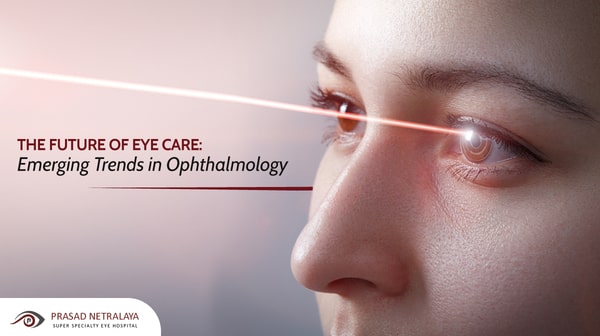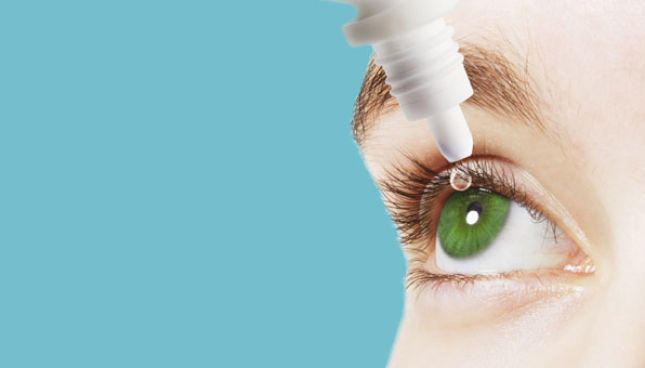Eye Doctors in Andalusia: Relied On Experts for Vision Health
Eye Doctors in Andalusia: Relied On Experts for Vision Health
Blog Article
Is Refractive Surgical Procedure Right for You? Aspects to Take Into Consideration for Better Eyecare
In the world of eye treatment, the choice to go through refractive surgical treatment is a crucial one that demands thoughtful consideration. As people seek clarity and liberty from the restraints of rehabilitative lenses, countless variables enter play when determining the suitability of such a procedure. From the ins and outs of one's eye health and wellness to the ins and outs of everyday behaviors and individual expectations, each element holds significance in the wider landscape of refractive surgery candidateship. By examining these crucial elements with treatment and accuracy, a more clear course in the direction of educated decision-making emerges.
Eye Wellness Assessment
When taking into consideration refractive surgical treatment, an extensive eye wellness assessment is essential to analyze the viability of the procedure for each and every individual. neurologist andalusia. This analysis includes a collection of tests and evaluations performed by an eye care professional to figure out the total health of the eyes, the presence of any underlying conditions, and the stability of the refractive mistake
Throughout the analysis, different factors are thought about, such as the person's case history, present eye prescription, corneal thickness, pupil dimension, and tear film high quality. These analyses aid to determine any contraindications to refractive surgery, such as corneal abnormalities, cataracts, or untreated eye infections. Additionally, the assessment helps to take care of client expectations regarding the possible outcomes of the surgical procedure based on their distinct eye qualities.
Ultimately, the eye health and wellness evaluation is vital in guaranteeing the safety and security and effectiveness of refractive surgical treatment, as it provides valuable understandings into the individual's eye wellness status and helps identify one of the most ideal treatment options for accomplishing optimum visual end results. (neurologist andalusia)
Way Of Living Assessment
A comprehensive way of living evaluation is essential in establishing the suitability of refractive surgical procedure for an individual's aesthetic modification needs. Way of living elements such as profession, hobbies, and daily tasks play a crucial function in the decision-making procedure concerning refractive surgery. Individuals with professions that entail a high level of physical activity or direct exposure to ecological elements may have various visual demands contrasted to those with sedentary workdesk jobs. Recognizing just how a person's way of life might influence their vision post-surgery is necessary for taking care of expectations and guaranteeing optimum outcomes.
Furthermore, way of life routines such as sporting activities participation, outdoor tasks, or also skin care regimens can influence the healing process and general success of refractive surgical procedure. For instance, people who engage in contact sports might need to take extra precautions to secure their eyes during the recuperation period. Additionally, individuals with extensive sunlight direct exposure may need added post-operative like prevent problems. By conducting an extensive lifestyle analysis, eye treatment professionals can customize their referrals and therapy strategies to fulfill the one-of-a-kind needs of each client, inevitably bring about boosted aesthetic end results and satisfaction.
Expectation Alignment

Clients require to understand that while many individuals attain 20/20 vision or much better adhering to refractive surgical treatment, some may still call for glasses for particular tasks like reading or driving at night. Taking care of these assumptions aids prevent dissatisfaction and frustration post-surgery, leading to an extra positive general experience for the person.
Danger Evaluation

Variables that might enhance the threat of issues consist of age, particular medical conditions like autoimmune diseases, unsteady vision prescription, thin corneas, and impractical individual expectations. Furthermore, selecting a knowledgeable and experienced specialist, complying with pre and post-operative treatment guidelines carefully, and revealing any type of relevant case history can help minimize risks.
To decrease the possibility of problems, eye doctors conduct detailed pre-operative analyses to identify any top article contraindications to surgical treatment. They likewise discuss the potential risks and advantages with individuals throughout the appointment process. By participating in open interaction and shared decision-making, both the eye doctor and the individual can function with each other to identify if refractive surgical treatment is the right selection based on private risk profiles and desired outcomes.
Assessment Value
Taking into consideration the important function of notified decision-making in analyzing risks and prospective difficulties in refractive surgical treatment, the appointment procedure holds significant relevance in directing patients in the direction of optimal end results. During the consultation, the ophthalmologist assesses the patient's eye wellness, refractive mistakes, and overall viability for surgery. This initial evaluation is crucial in determining one of the most appropriate treatment for each person, taking into account aspects such as corneal thickness, pupil size, and existing eye conditions.
Moreover, the examination works as a possibility for individuals to discuss their assumptions, concerns, and any questions they might have pertaining to the surgical treatment. Clear communication in between the individual and the specialist is important to guarantee reasonable expectations and an extensive understanding of the possible risks and advantages entailed.
Furthermore, the consultation permits the specialist to describe the different medical options offered, their respective results, and the post-operative treatment needed. This detailed conversation equips individuals to make knowledgeable choices regarding their eye treatment, bring about much better fulfillment and outcomes post-surgery.
Conclusion
To conclude, people considering refractive surgical procedure should undertake an extensive eye wellness examination, website link examine their way of life routines, align their expectations with possible outcomes, assess the connected threats, and focus on appointments with eye treatment professionals. These elements play a vital duty in identifying the viability of refractive surgical treatment for each person, making certain optimal outcomes and complete satisfaction with the treatment.
Individuals considering refractive surgical procedure often have high expectations relating to the end results, expecting excellent vision without the need for glasses or contact lenses. While refractive surgical procedure can considerably enhance vision and decrease dependence on visual help, it is essential for patients to understand that results might differ based on specific factors such as the level of refractive mistake, corneal density, and general eye wellness.
By involving in open communication and shared decision-making, both the eye doctor and the individual can function together to determine if refractive surgery is the best option based on specific risk accounts and wanted outcomes.
Considering the important role of educated decision-making in analyzing threats and possible issues in refractive surgical procedure, the examination procedure holds significant relevance in directing people in the direction of ideal end results. Throughout the examination, the ophthalmologist evaluates the person's eye health and wellness, refractive errors, and overall viability for surgical treatment.
Report this page